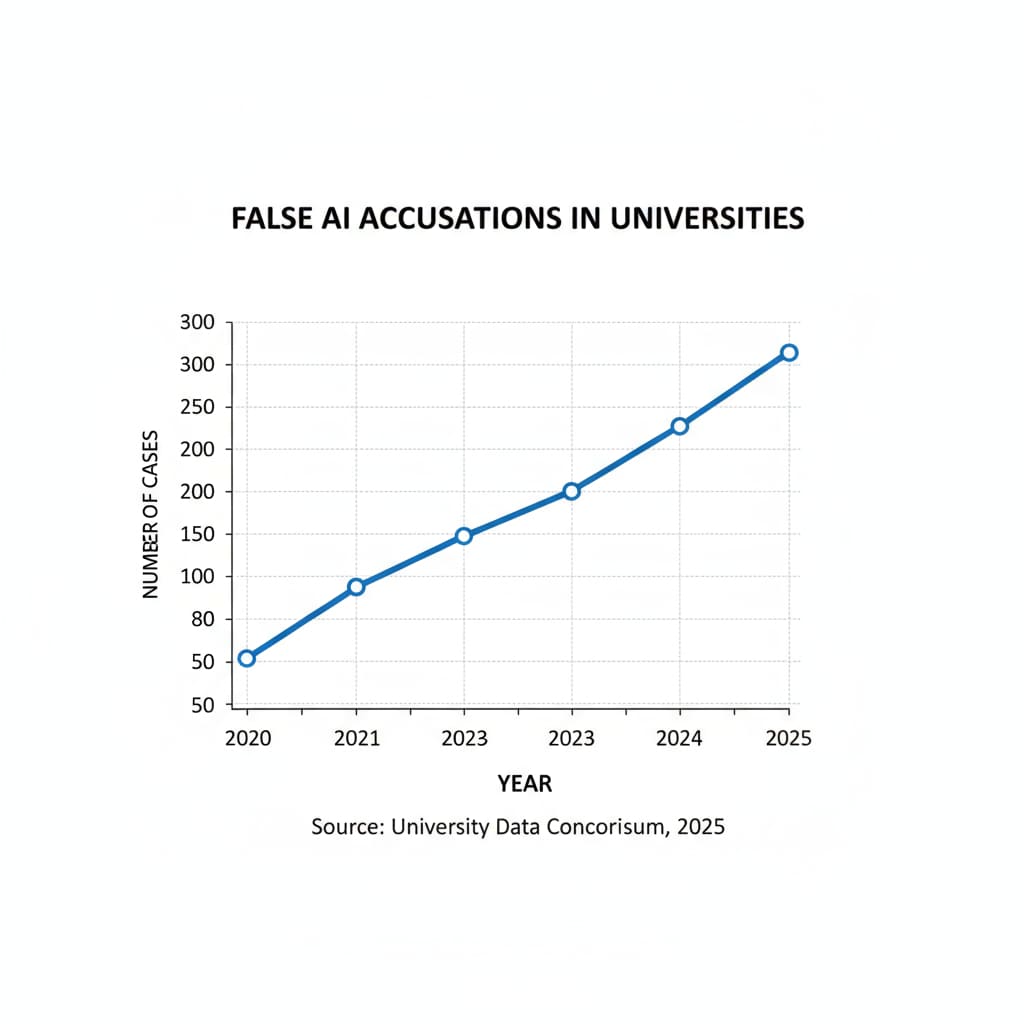As the use of artificial intelligence (AI) becomes more prevalent in education, the issues of university responsibilities, false accusations of AI use, and academic sanctions have come to the forefront. In recent times, an increasing number of students are being wrongly accused of using AI to complete their assignments. This not only unjustly impacts their academic progress but also raises important questions about the role of educational institutions in the digital age.

The Rise of False AI Accusations
The widespread adoption of AI tools has made it challenging for universities to distinguish between student work and AI-generated content. For example, some automated detection tools are not yet sophisticated enough to accurately identify AI use. As a result, innocent students are being caught in the crossfire. These false accusations can have severe consequences for students, such as damaged reputations and potential academic probation. According to Inside Higher Ed, many students have reported facing unjust accusations due to the limitations of current detection methods.

University Responsibilities in the AI Era
Universities have a crucial role to play in ensuring fairness and accuracy in handling AI-related accusations. Firstly, they need to invest in more reliable detection technologies. Secondly, clear guidelines and procedures should be established for investigating and adjudicating such cases. This includes providing students with the opportunity to defend themselves. Additionally, universities should educate faculty and staff on how to identify and handle AI use appropriately. As stated on The Chronicle of Higher Education, institutions must take proactive steps to address these issues to protect the integrity of the academic system and the rights of students.
Another aspect of university responsibility is to promote digital literacy among students. By teaching students about the ethical use of AI and how to avoid any appearance of impropriety, universities can help prevent misunderstandings. This also involves encouraging students to use AI as a learning tool rather than a shortcut. For example, students can be taught to use AI for research assistance and idea generation while still demonstrating their own understanding and critical thinking in their work.
Readability guidance: Here we have presented the main points about the rise of false accusations and university responsibilities. In each section, we have used short paragraphs and provided relevant external links for further information. Transition words like ‘firstly’,’secondly’, ‘additionally’, and ‘for example’ have been used to make the flow smooth.


